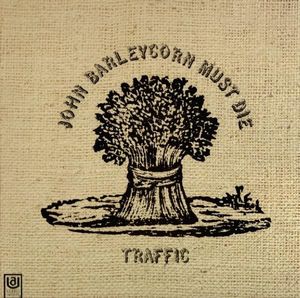One of the bands from the 1960s and 1970s which never quite got the recognition it deserved was Traffic. Perhaps they were a little too eclectic for their own good, their repertoire encompassing psychedelia, folk-rock, soul, progressive-rock, jazz-rock and other styles.
In 1970, they released the album John Barleycorn Must Die, which was, it seems, originally planned to be a Steve Winwood solo project. It remains an intriguing and satisfying work to me, even if critical opinion towards it has been somewhat mixed and even lukewarm.
The album contains only six tracks, but relatively little in the way of instrumental noodling or self-indulgence. There is a pronounced blue-eyed soul and jazzy flavour to the majority of the songs, and also an accent on keyboards, which I find most refreshing. Perhaps unsurprisingly, the multi-talented Winwood pretty much dominates proceedings, in the absence of Dave Mason.
The opening track, "Glad", is a sprightly instrumental, partly in the style of Booker T and the MGs, with some dreamier passages added. "Freedom Rider" has a similar sonic palette, and Chris Wood's talents on saxophone and flute are also very much to the fore. As elsewhere on this record, the drum and percussion sounds are well captured and very "live" and three-dimensional.
On "Empty Pages", the glorious Hammond organ sound has more of a showcase, and Winwood's expressive voice is projected with more clarity. "Stranger To Himself" has more raw and passionate vocals, and it is also more guitar-orientated than some of the other pieces here.
The title track could appear on first acquaintance like an unremarkable folk song, but it has a capacity to draw the listener in, through the conviction of the singing and the playing, and the mystique of the lyrics. Again, the textures supplied by instruments such as the flute play a large part in the song's vitality, this organic but diverse and layered flavour very pleasing to the ear.
As the closer, "Every Mother's Son" definitely has its virtues, with a fine Winwood vocal and some quite stirring melodic parts, but I can't help feeling that it becomes a little over-wrought and ponderous in places, particularly after repeated listening. All praise imaginable is due to the beautiful organ solo section in the middle, though....
The apparent critical ambivalence towards John Barleycorn Must Die may stem from a perception that the album is understated and "unspectacular", even clinical in places. However, it is superbly crafted and produced, and it is an album that demands to be listened to closely and attentively, as its depth and charm are more readily appreciated and savoured under those conditions.

No comments:
Post a Comment